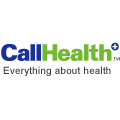Keep heart disease at bay with a healthy diet
December 06, 2018A healthy diet, physical exercise, and limiting alcohol and smoking can effectively prevent cardiovascular diseases. Read on to find out how to incorporate a healthy diet into your life.
Cardiovascular diseases are known as the disorders of the heart and blood vessels. The major risk factors contributing to cardiovascular diseases include heredity, high blood pressure, diabetes, obesity, and high blood cholesterol level. A healthy diet, physical exercise, and limiting alcohol and smoking can effectively prevent cardiovascular diseases. Lifestyle factors, including nutrition, play an important role in the etiology of Cardiovascular Disease
Also read about -Nutrition going up in smoke? Here's how cigarettes destroy your vitamins.
How can my diet reduce the risk of heart diseases?
A healthy diet plays an important role in reducing the risk of heart diseases particularly if youre at risk for stroke.
Also read about - Nutrition Advice for Stroke or Heart Patients
A proper diet plan should be followed under a medical supervision.
A practised nutritionist can help in reaching your health and fitness goals with guidelines that help reduce the risk of heart diseases.
Some of the good dietary patterns include the low-fat diet, low carbohydrate diet, and the DASH diet.
What is low fat or healthy fats?:
The ratio of saturated fat and unsaturated fat in our diets is very important. While full-fat dairy products and meats (as well as many processed foods like cakes and biscuits) are high in bad saturated fat, great sources of good unsaturated fat include nuts, seeds, and vegetable oils. While its not practical to eliminate saturated fat in your diet entirely, as it is present (in small amounts) in many foods, replacing saturated fats with unsaturated fats in the diet has been shown to lower blood cholesterol one of the risk factors in the development of heart disease*.
Fats you should definitely include in your diet
- Non-animal fats which are organic
- Animal fats from pasture- raised /grass fed are ideal such as Butter, Ghee
- Eggs, meat and seafood
Fats you should ditch from your diet
- Man-made fats, particularly Trans fats are very harmful.
- Unsaturated oils like rapeseed oil, vegetable oil, sunflower oil etc.
What is a Low Carb diet?
A low-carb diet is a diet that restricts carbohydrates, such as those found in sugary foods, pasta and bread. It is high in protein, fat and healthy vegetables.
Foods to Avoid:
You should avoid these 7 foods, in order of importance
Sugar: Soft drinks, fruit juices, agave, candy, ice cream and many others.
Gluten Grains: Wheat, spelt, barley and rye. Includes bread and pasta.
Trans Fats: "Hydrogenated" or "partially hydrogenated" oils.
High Omega-6 Seed- and Vegetable Oils: Cottonseed-, soybean-, sunflower-, grapeseed-, corn-, safflower and canola oils.
Artificial Sweeteners: Aspartame, Saccharin, Sucralose, Cyclamates and Acesulfame Potassium. Use Stevia instead.
"Diet" and "Low-Fat" Products: Many dairy products, cereals, crackers, etc.
You should base your diet on these real, unprocessed, low-carb foods.
Meat: lamb, chicken and others. Grass-fed is best.
Fish: Salmon, trout, haddock and many others. Wild-caught fish is best.
Eggs: Omega-3 enriched or pastured eggs are best.
Vegetables: Spinach, broccoli, cauliflower, carrots and many others.
Fruits: Apples, oranges, pears, blueberries, strawberries.
Nuts and Seeds: Almonds, walnuts, sunflower seeds, etc.
High-Fat Dairy: Cheese, butter, heavy cream, yoghurt.
Fats and Oils: Coconut oil, butter, lard, olive oil and cod fish liver oil.
Tubers: Potatoes, sweet potatoes and some others.
Non-gluten grains: Rice, oats, quinoa and many others.
Legumes: Lentils, black beans, pinto beans, etc. (If you can tolerate them).
You can have these in moderation if you want:
Dark Chocolate: Choose organic brands with 70% cocoa or higher.
Wine: Choose dry wines with no added sugar or carbs.
Dark chocolate is high in antioxidants and may provide health benefits if you eat it in moderation. However, be aware that both dark chocolate and alcohol will hinder your progress if you eat/drink too much.
Also read about -Are you a heavy drinker? Here's how alcohol is killing your essential nutrients.
What is a DASH diet?
DASH stands for Dietary Approaches to Stop Hypertension and on an average, this diet helps people reduce their blood pressure by 6.7 mmHg systolic and 3.5 mmHg diastolic in just two weeks.
The DASH diet plan includes eating more
fruits and vegetables, low-fat or nonfat dairy, beans, and nuts.
And eating less fatty meats,full-fat dairy products,sugar-sweetened beverages, sweets, and sodium (salt).
The DASH diet guidelines from the original research study specified two levels of sodium reduction.
The DASH diet phase 1 limited sodium to 2300mg, or about 1 teaspoon per day.
The DASH diet phase 2 further reduced sodium to 1500mg
Can lifestyle cause this condition?
A sedentary lifestyle is one of the 5 major risk factors (along with high blood pressure, abnormal values for blood lipids, smoking, and obesity) for cardiovascular disease. To avoid it, one must opt for running/exercising. This not only helps reduce body weight but also keeps the blood pressure regulated. It also moderates the level of Cholesterol and increases insulin sensitivity.
Also read about - High Cholesterol Risk Factors, Diagnosis and Treatment
Article by Ms. Chandana Kakamanu, M.Sc. (Dietetics)
Consultant Dietitian, CallHealth
Have a question? Consult Ms. Chandana Online.

